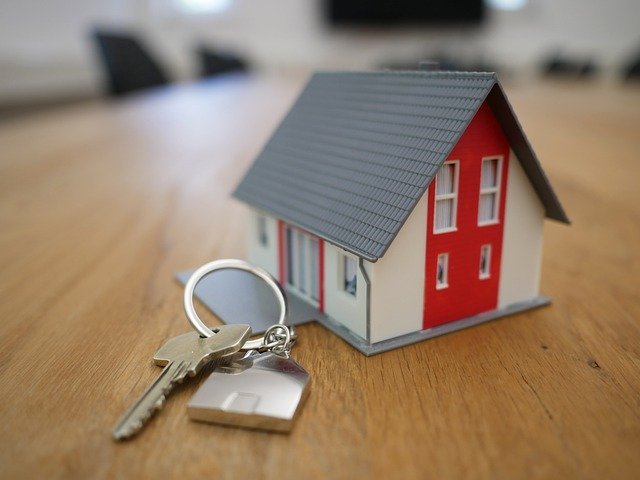Personal Finance
Solid Advice On Personal Finance – Tips To Use Now
Our own personal finances often weigh heavily on our minds. Some people seem to handle money better than others when it comes to managing their money. Even those it’s easier for some, everyone can keep their finances in order if they know how to do it. This article is jammed with tips that can teach you solid money management skills.
Whenever you can, avoid debt. This will result in healthy personal finances. Sometimes you can’t avoid debt (e.g. education loans, mortgages) however, you should avoid debt such as that created by credit cards, as it can be deadly. The less money you borrow, the less you will have to pay in interest charges and other fees.
Do not deal with a broker you are considering investing with. Check a broker’s references and listen to what they say to judge their honesty. Your experience is also a broker.
By practicing patience in your personal finances, you can save a significant amount of money. A lot of people will rush out to buy the newest model or latest edition of electronic products as soon as they hit the shelves. But if you exercise a bit of patience, you will most likely see a substantial price decrease on these same items. This, in turn, frees up additional cash that can be spent on other items.
Buy lean protein at a store that offers it in large quantities to save money and spend less time shopping. Bulk purchases are excellent if you plan to use all of what you purchased. A lot of time will be saved by cooking a week’s worth of the week.
Married? Have the partner with the highest credit score apply for any loans. If your credit is poor, rebuilt it slowly by using a credit card cautiously and repaying the balance religiously. Once you have both improved your credit scores, you can share the debt responsibility for future loans.
Eating out less from restaurants or fast food joints can save a ton of money and promote better personal finances. You will save a lot of money by preparing meals at home.
In order to establish a nest egg, you need to deposit money on a regular basis into some type of savings account. With a savings account, you can avoid needing a loan when finances are diminished or if something unexpected occurs. Contribute what you can every month, even if it is very small.
Credit Card
Frequent flier programs are great for people who travel by air a great deal, whether it be for business or recreation. A number of credit card companies provide bonus points that you can use to get low cost or free air fare. Frequent flier miles can also often be redeemed at a variety of hotels for free rooms or discounted stays.
Credit cards with rewards are convenient and more secure than a debit cards. If you get approved for a credit card, use them on day-to-day purchases, such as groceries and gas for your car. Most of the time, credit card companies provide rewards for the use of their cards so you may see cash back on these items.
Make sure to save for a rainy day by creating a savings account for emergencies. Saving for specific goals, like college, is the best way to prepare for expenses that you know will be in the future.
You can sell an old laptop if you’re trying to earn a little extra money every week.
Pay your utility bills in a timely manner. Your credit rating may go down if you pay late. Paying late will also rack up late fees and penalties. It is not good to pay late, so try to pay your bills as early as you can.

Avoid fees by only using the ATM of your bank. Financial institutions have heavy monthly and per-transaction fees if you use other ATMs, and those fees can be very expensive.
It can be helpful to talk with a relative or friend who works with finances to get insight on how to properly manage your money. If there aren’t any family members that have finance experience, close friends are also a good choice to turn to.
Make sure that you have a flexible account for spending.
Do not underestimate the role that a balance on a credit card will have in regards to your FICO score. The bigger the balances on your credit cards are, the worse they will affect your score in a negative way. If you want to lower your score, pay off your balance. You should keep your balance at 20 percent less than what your limit is.
Think carefully about your feelings are towards money. You’ll be better equipped to get past this and cultivate more positive feelings in the future.
If you don’t already have one, open a new flexible spending account. Everything that you put away will lower your tax liability on your payroll check.
You need to assess the balance your portfolio once a year. Re-balancing your portfolio gets your assets with your goals and risk tolerance. It will also forces you to track your investments.
Some debt is actually good for your credit score. There are many debts that are good, such as real estate loans. Typically, investment in real estate of any type will yield good returns for the money in the form of appreciation, as well as a tax deduction for interest paid on loans used for purchasing the property. Another good debt is college expenses. There are many loans out there for students that have lower interest rates that don’t have to be reimbursed until graduation.
Rewards Cards
Watch out for mail that may show up in your mail about changes in your accounts. According to the law, you must receive a 45 day notice ahead of time. Go through the changes meticulously and decide if the changes coming up mean that the account is still worth holding. If you do not think the account is worth keeping, pay off whatever amount you need to and then close it.
Have you ever considered signing up for a credit card with a rewards plan? Rewards cards are best for people who pay off their balance in full each month. Rewards cards offer incentives like cash back, airline miles, and save on other expenses as well. Look for cards that offer appealing rewards and see what works best for rewards.
Keep track of your monthly expenses and create a budget using those records. If you are spending an excess amount of money in certain areas, keeping this log will help you understand where you have areas to trim. If you do not do this, you will not be able to keep up with your spending habits even if your income increases. Using services such as personal finance software may help you find the process less stressful on yourself, and maybe even more intriguing. If your budget leaves you extra money, put it towards debt or put it in a savings account with a high yield.
Keeping your personal finances under control is highly important. Although it isn’t easy, after reading this article, you should now know that you can improve your financial situation and learn to get the most out of your money. Keeping your personal finances in order will be significantly easier, if you apply the tips you read about in this article.
As soon as you get your personal financial situation straightened out, begin saving money for your children to go to college. If you wait to save, you may not have enough for them to go to college.


